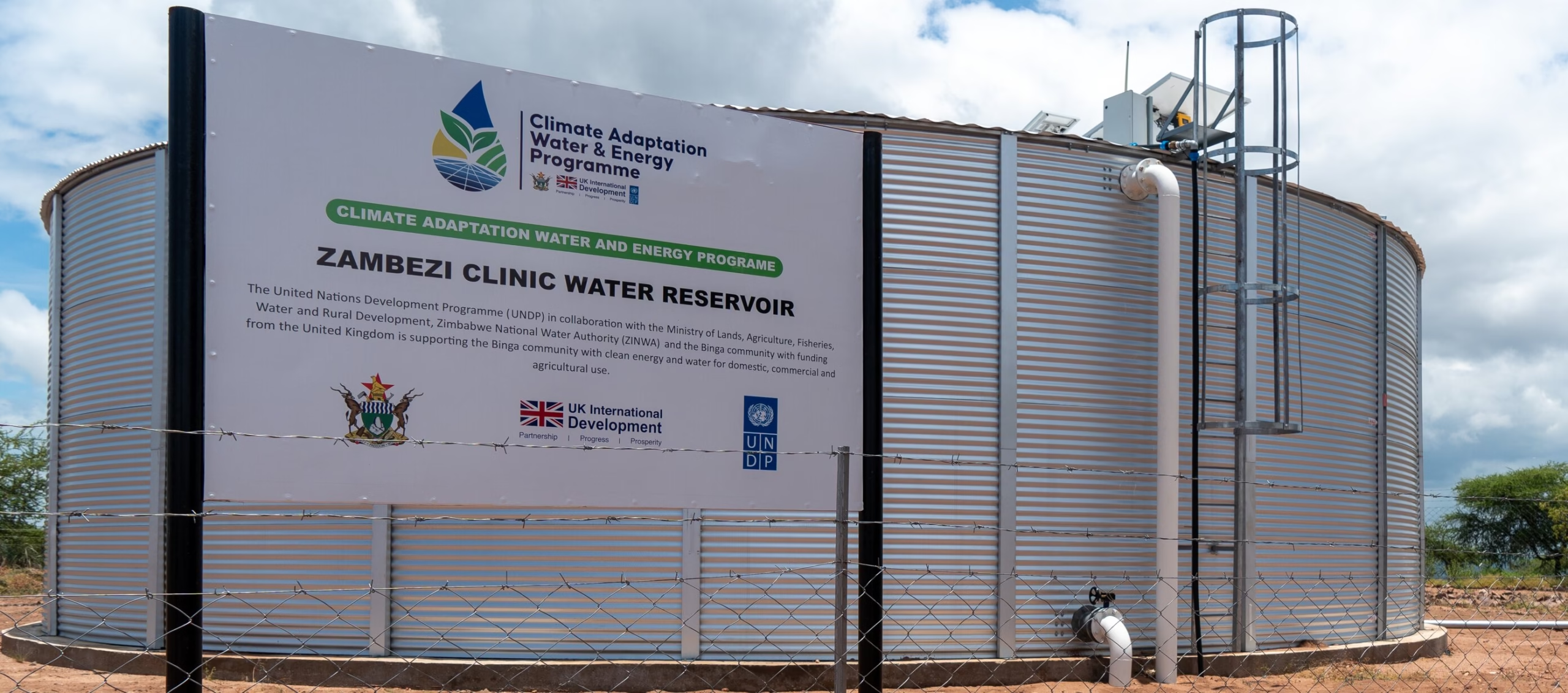
Zimbabwe’s Climate Adaptation Water and Energy Programme (CAWEP) is redefining climate resilience in rural communities by integrating water security, agriculture, and renewable energy. In Binga, where droughts and erratic rainfall have historically threatened livelihoods, this initiative is not only addressing immediate challenges but also laying a foundation for sustainable development and economic empowerment. By ensuring potable water access for 44,000 people, expanding an irrigation scheme for commercial farming, and deploying solar energy for schools, clinics, and businesses, CAWEP is proving that rural communities can become self-sustaining economic hubs rather than aid-dependent regions.
Water security is at the core of this transformation. A 65 km pipeline, solar-powered floating pumps, and community water points have significantly improved access, reducing the time and burden on women and girls who previously walked long distances for water. Beyond household use, this reliable water supply is driving agricultural productivity through a 20-hectare irrigation scheme under the ARDA V30 Accelerator model, where 185 farmers are transitioning from subsistence to commercial agriculture. Early harvests of sugar beans and wheat demonstrate the viability of this model, as farmers supply the Grain Marketing Board (GMB) and local markets. Additionally, four community gardens equipped with solar-powered drip irrigation provide sustainable livelihoods for 151 people, further strengthening food security.
Energy is the catalyst that binds these efforts together. CAWEP’s solar mini-grid, with a capacity of 968 kW, is powering schools, a clinic, water systems, and businesses, benefiting over 8,500 people. This investment aligns with Zimbabwe’s renewable energy goals and contributes 9.5% toward the country’s Nationally Determined Contribution (NDC) targets. The provision of solar-powered floodlights and electrified Agritex offices is also enhancing security and agricultural extension services.
Beyond infrastructure, CAWEP is fostering economic empowerment through skills development and financial inclusion. Over 200 people have been trained in vocational skills such as welding, plumbing, and dressmaking, while entrepreneurship training has equipped 136 individuals with business management knowledge. Village Savings and Lending (VSL) groups have mobilized USD 13,020, creating local capital for small businesses and infrastructure maintenance. These interventions align with Zimbabwe’s Vision 2030 and the Village Business Unit (VBU) model, positioning rural communities as drivers of economic growth rather than passive recipients of aid.
CAWEP’s success in Binga provides a scalable model for nationwide rural development. By harmonizing water security, sustainable agriculture, and renewable energy, the program offers a blueprint for building climate resilience and economic self-reliance across Zimbabwe. With continued investment from government, development partners, and the private sector, this model can bridge the urban-rural divide, ensuring inclusive and sustainable development for all Zimbabweans.




